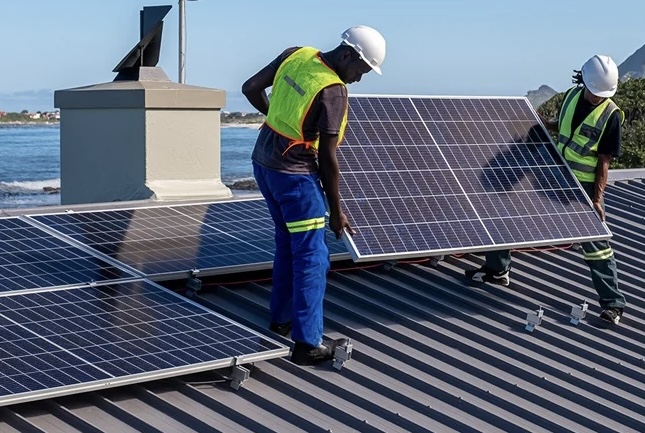KEY POINTS
- Nigeria imported ₦242.68 billion worth of solar panels in H1 2025.
- The government is boosting Nigeria’s solar panel manufacturing capacity.
- PwC warns against a hasty import ban without a gradual transition.
Nigerians spent about ₦242.68 billion on the importation of solar panels in the first half of 2025, according to new data from the National Bureau of Statistics (NBS).
Solar panel imports remain strong
The figure highlights the country’s continued appetite for renewable energy solutions even as the government moves to expand local production.
The NBS report obtained showed that photovoltaic cells assembled in modules or made up into panels worth ₦125.29 billion were imported between January and March 2025. Another ₦117.39 billion was recorded between April and June, bringing total solar panel imports for the first six months to ₦242.68 billion.
While demand remains strong, the six-month figure marks a notable slowdown compared with ₦237.3 billion spent in the last quarter of 2024. Analysts say the dip may reflect both currency pressures and renewed government efforts to limit dependence on imports.
Nigeria’s push for local solar capacity
The Federal Government has intensified its campaign to boost Nigeria’s solar panel manufacturing capacity, emphasizing that local factories are now equipped to meet domestic demand. According to the Managing Director of the Rural Electrification Agency, Abba Aliyu, the nation’s installed solar module capacity has expanded to 600 megawatts from 110 megawatts previously.
He cited key facilities, including a 100MW plant in Lagos and a 250MW facility in Abuja, among others in Idu and Port Harcourt. “We are changing the narrative,” Aliyu said. “Nigeria now has the capacity to produce solar panels locally and support the transition to clean energy.”
The Minister of Science and Technology, Uche Nnaji, said in March that the government plans to restrict imports under a new executive order prioritizing local content. He added that with abundant lithium deposits, Nigeria is already producing batteries and developing off-grid mini solutions for homes and institutions.
Still, PricewaterhouseCoopers (PwC) has urged caution. In a report titled “Rethinking Nigeria’s Proposed Solar Panel Import Policy,” the consulting firm warned that an immediate ban could discourage investors and slow energy access. Instead, PwC recommended a phased import reduction over three to five years, combined with stronger quality control for local manufacturers.
Meanwhile, the State House has begun installing solar panels at its conference centre as part of a ₦10 billion off-grid project approved in the 2025 budget, according to Punch. The initiative, titled “Solarisation of the Villa with Solar Mini Grid,” aims to reduce reliance on the national grid and shield government operations from rising electricity tariffs.



